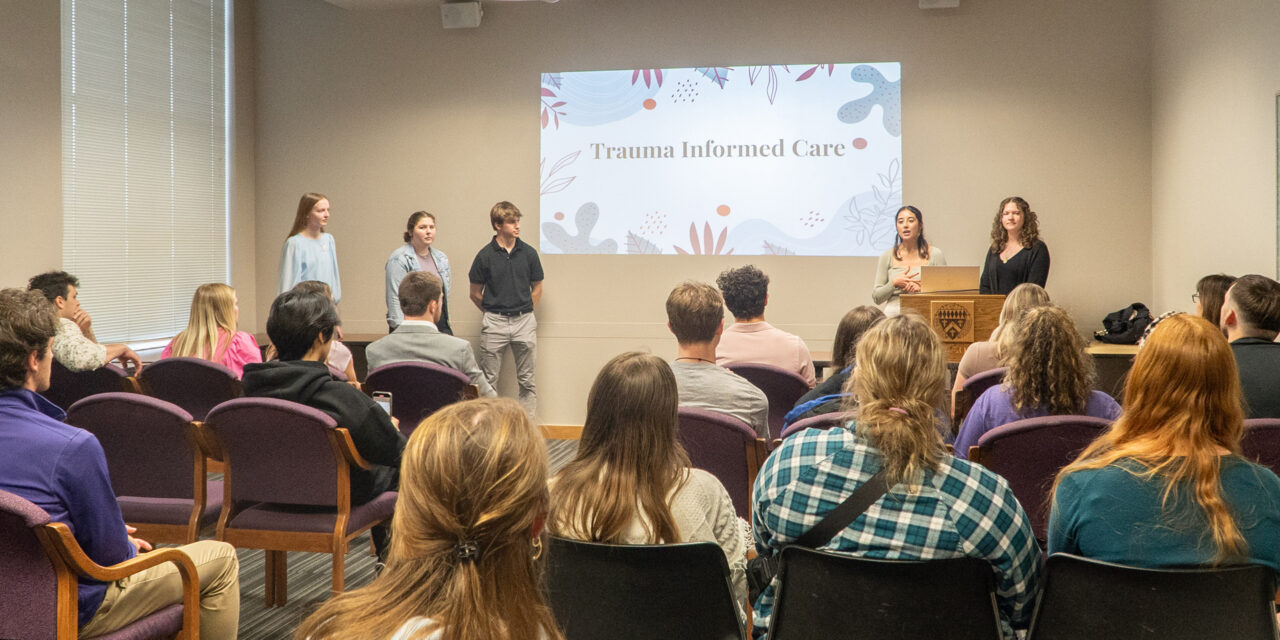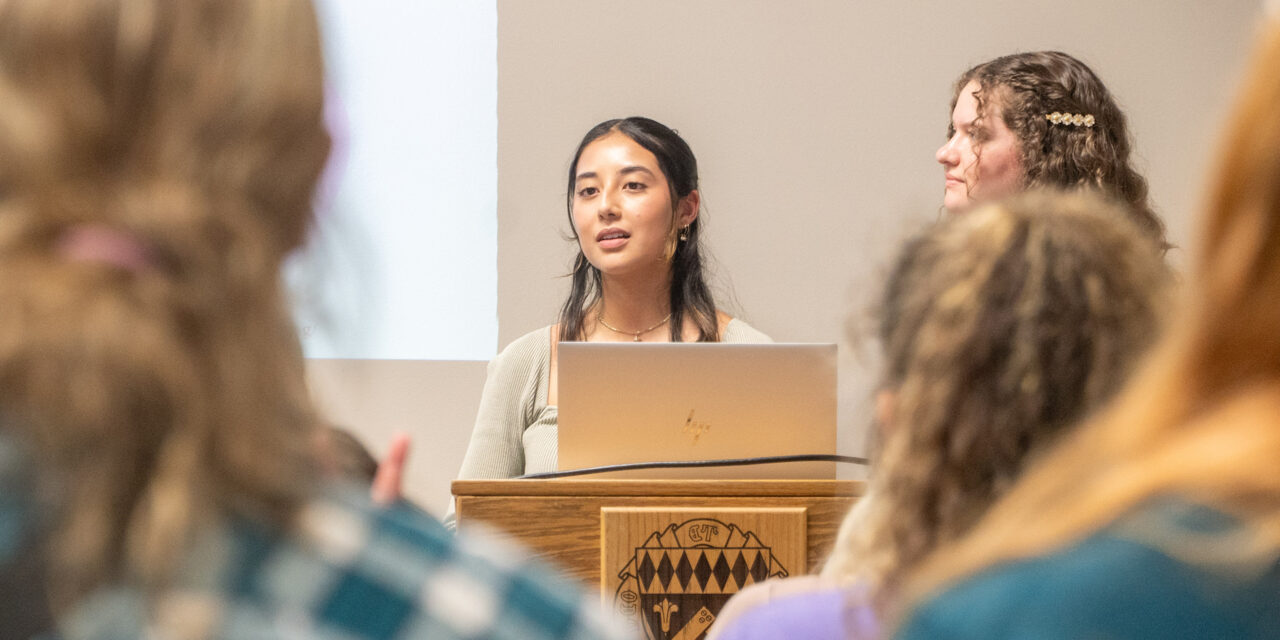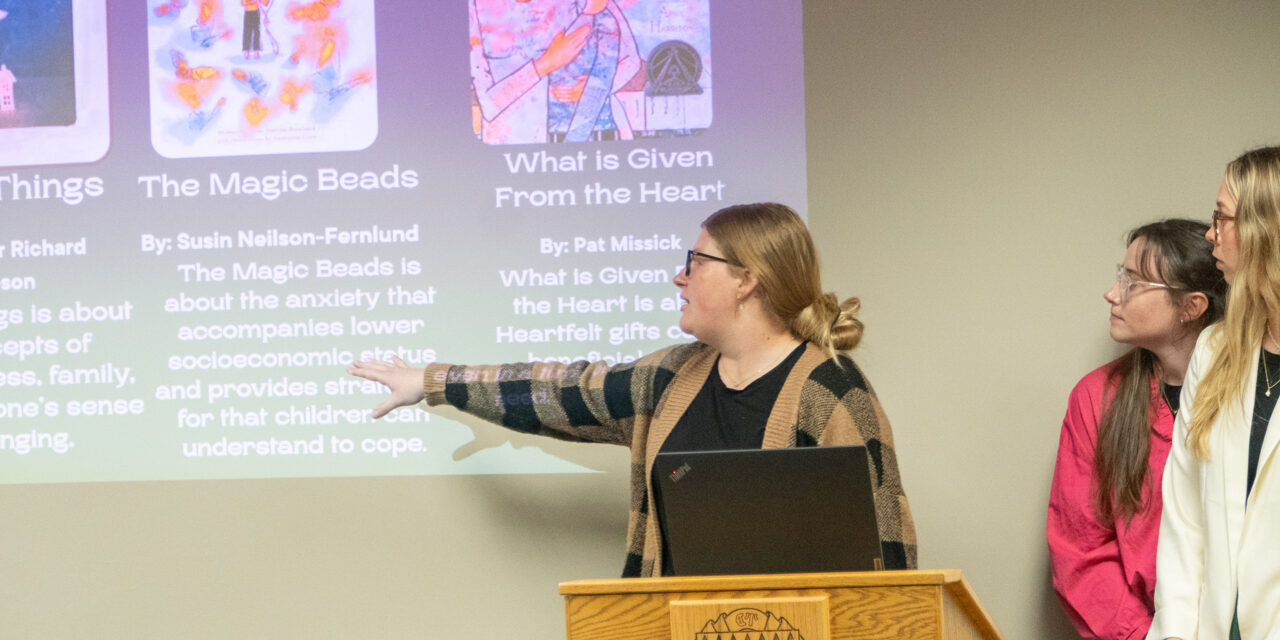April 15, 2026



The Legacy Symposium is held on campus in the spring semester. Its aim is to exemplify academic excellence on campus throughout the year.
Inspired by Monsignor Barta’s passion for a Catholic liberal arts education, the Legacy Symposium has become an exciting day for young, aspirational professionals who wish to gain real-world experience presenting their academic research.
RELIVE THE SYMPOSIUM
2026 Schedule
Abstract Submission Deadline: March 6 (tentative)
Poster Submission Deadline: March 18 (tentative)
Attendee Information
Harassment & Safety
Loras College and the Legacy Symposium strives to be a community demonstrating the highest standards of the Catholic intellectual tradition and welcoming all people into a dialogue to promote core values of truth, respect, responsibility, excellence, and service. The Loras Legacy Symposium is committed to providing a safe and productive environment for everyone present at the meeting. We promote an open atmosphere of critical inquiry and academic conversation. As a Catholic college, we are called upon to be particularly attentive to the rich variety among the people of the world. We seek to foster dialogues that will promote understanding, cooperation and respect.
In every dimension of what diversity entails, human dignity must always be maintained. Loras Legacy prohibits intimidating, threatening, or harassing conduct during the symposium. This policy applies to speakers, staff, volunteers, and attendees. Symposium participants violating these rules may be asked to leave at the discretion of Symposium and College leadership. Harassment will not be tolerated in any form and includes the following:
- Offensive comments related to ethnicity, religion, disability, age, economic status, physical appearance, gender, or sexual orientation.
- Deliberate intimidation, stalking, following, harassing photography or recording, sustained disruption of talks or other events, inappropriate physical contact, and unwelcome attention.
Many different types of inappropriate behaviors, whether written, verbal, or physical, can affect the personal and professional well-being of people in the workplace, especially when people misuse their positions of power and influence. Research confirms that these inappropriate behaviors have the highest impact on women and underrepresented demographic groups.
Types of Inappropriate Behavior
Exclude
To block someone’s access to resources or opportunities, make someone feel unwelcome, based on their identity or affiliation with a particular group
Belittle
To treat someone in a condescending manner or with the assumption of incompetence Discriminate To make an unjust or prejudicial distinction in the treatment of someone based on their identity or affiliation with a particular group
Bully/Intimidate
To threaten, frighten, humiliate, or intimidate someone with abusive words or actions
Harass
To use words or actions that are unwanted, unwelcome, demeaning, degrading abusive or offensive, and to persist in such actions despite resistance, protest, or rebuke by the recipient(s) of those actions
Assault
To make unwelcome physical contact with anyone in any manner, including actual bodily harm and any form of unwanted sexual contact; to threaten bodily harm with an apparent present ability to cause harm
Awareness & Creating a Respectful Environment
Know your Policies
By adopting this Code of Conduct, Loras Legacy Symposium has established clear and specific expectations and norms to promote the best Symposium climate possible. All students, staff, faculty and attendees are encouraged to familiarize themselves with the policies. The best way to promote a positive change is to be able to identify inappropriate behaviors and know how to respond. Bring these policies to the attention of symposium organizers.
What constitutes inappropriate behavior?
As norms and expectations change, we expect changes in what IS considered acceptable behavior. Issues of behavior and bias are often difficult to talk about, but the most productive discussions happen when we share common goals. Have an open discussion with your staff, your faculty, and your fellow students about our ultimate goals as a college and why safe and inclusive symposia are important. Be explicit in your discussions about what is or is not appropriate behavior and be open to discussions on differences in opinions.
DuUnite!
You hurt one, you hurt all. We all need to be active participants in creating an inclusive environment. Think about ways you can send the message that the best environment for sharing our work is one that is fair, equitable and welcoming to all participants. There are many ways to promote discussions, engage in diversity-focused activities, and be proactive—make a positive change for our community.
Reporting an Incident of Harassment or Inappropriate Behavior
Participants asked to stop any harassing behavior are expected to comply immediately. If you are being harassed, notice someone else being harassed, or have any other concerns, please contact Loras Legacy staff, who can work with appropriate Society leadership to resolve the situation. We value your attendance, and want to make your experience as productive and stimulating as possible.
We ask that you notify Kathy Weber or Erin McGovern, Co-Chairs of the Legacy Committee, immediately with any concerns so they may be addressed. Should you need to contact us in writing, please email Kathy.Weber@loras.edu or Erin.McGovern@loras.edu. We look forward to everyone enjoying the symposium.
National Street Harassment Hotline: 855.897.5910
Live Chat available
National Sexual Assault Hotline: 800.656.4673
Iowa Sexual Abuse Hotline: 800.770.1650
iowacasa.org
Crisis Text Line
Crisis Text Line serves anyone, in any type of crisis, providing access to free, 24/7 support and information via the medium people already use and trust: text. Here’s how it works:
- Text 741-741 from anywhere in the USA, anytime, about any type of crisis.
- A live, trained Crisis Counselor receives the text and responds quickly.
- The volunteer Crisis Counselor will help you move from a hot to a cool moment
RAINN (Rape, Abuse, and Incest National Network)
